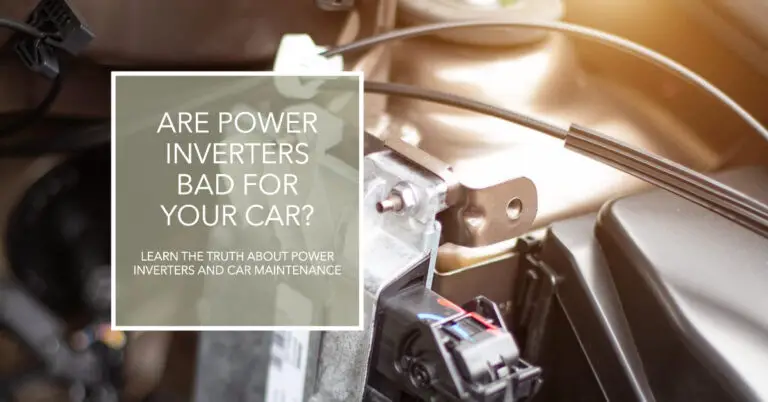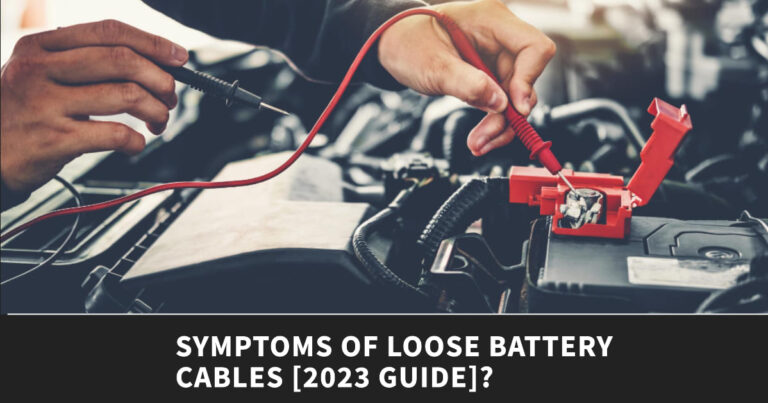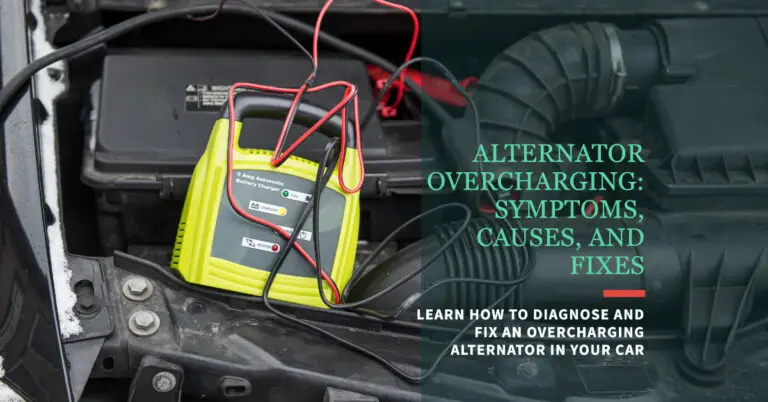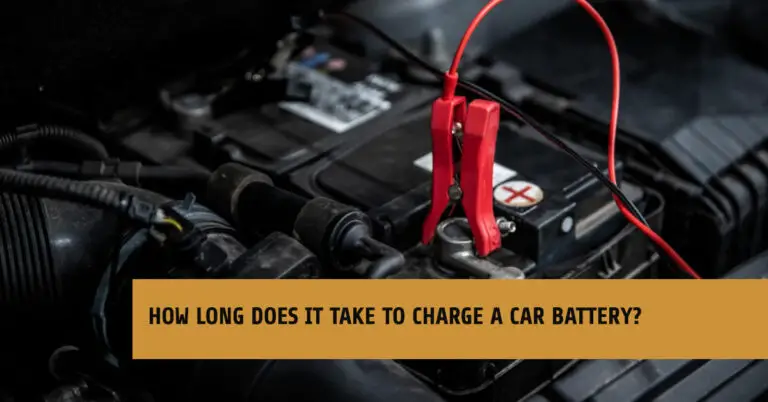Best Gauge for Jumper Cables in 2024: A Comprehensive Guide
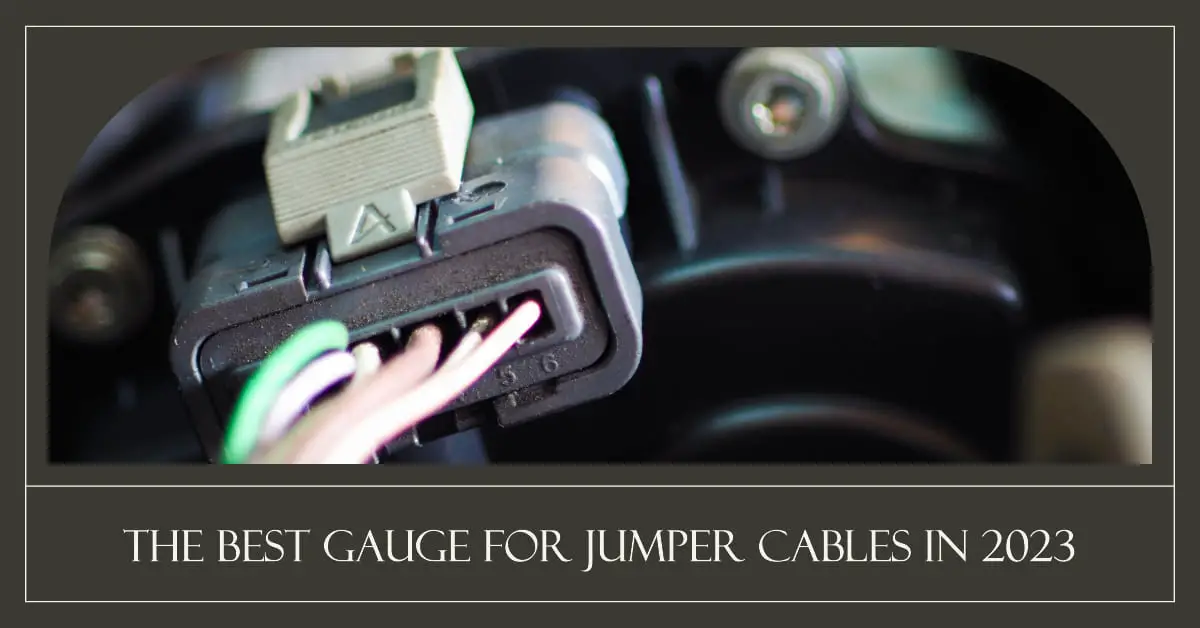
Jumper cables are essential tools for any driver to have in their car. They allow you to jump-start a dead battery and get back on the road quickly. However, not all jumper cables are created equal. One of the most important factors to consider when choosing a set of jumper cables is the gauge.
The gauge of a jumper cable refers to the thickness of the wire. The thicker the wire, the more current it can carry. This is important because the current needs to be strong enough to jump-start your car’s battery. If the wire is too thin, it may not be able to provide enough power to start your car. On the other hand, if the wire is too thick, it may be difficult to handle and store.
Table of Contents
Importance of Gauge for Jumper Cables
What is Gauge and Why is it Important?
Gauge is a measurement of the thickness of a wire. In the case of jumper cables, the gauge determines the amount of electricity that can run through the cable. The thicker the cable, the more electricity it can carry, which is why it’s important to choose the right gauge for your vehicle.
Using the wrong gauge of jumper cable can lead to problems. If the cable is too thin, it may not be able to carry enough electricity to jump-start your vehicle. On the other hand, if the cable is too thick, it may be too heavy and difficult to handle.
How to Choose the Right Gauge for Your Jumper Cables
Choosing the right gauge of jumper cable depends on the type of vehicle you have. Here are some general guidelines to follow:
- For small cars and compact vehicles, a 10-12 gauge cable should be sufficient.
- For mid-sized cars and SUVs, a 6-8 gauge cable is recommended.
- For larger vehicles such as trucks and vans, a 4-6 gauge cable is necessary.
It’s also important to consider the length of the cable. Longer cables can be more convenient, but they can also be more difficult to handle and may not carry as much electricity as shorter cables.
When shopping for jumper cables, look for cables with high-quality clamps and insulation. Copper-clad aluminum cables are less expensive, but pure copper cables are more durable and reliable.
Types of Jumper Cable Gauges
Jumper cables come in different gauges, and each gauge has its own electrical capacity. Here are the different types of jumper cable gauges:
6 Gauge
The 6 gauge jumper cable is the most common type of jumper cable gauge. It is ideal for small to medium-sized cars and can deliver up to 65 amps of electrical current. It is also the most affordable type of jumper cable.
4 Gauge
The 4 gauge jumper cable is slightly thicker than the 6 gauge jumper cable and can deliver up to 100 amps of electrical current. It is suitable for larger vehicles such as SUVs, trucks, and vans. It is also more expensive than the 6 gauge jumper cable.
2 Gauge
The 2 gauge jumper cable is thicker than the 4 gauge jumper cable and can deliver up to 150 amps of electrical current. It is suitable for heavy-duty vehicles such as large trucks and construction equipment.
1/0 Gauge
The 1/0 gauge jumper cable is thicker than the 2 gauge jumper cable and can deliver up to 200 amps of electrical current. It is suitable for heavy-duty vehicles such as buses and tractor-trailers.
2/0 Gauge
The 2/0 gauge jumper cable is the thickest type of jumper cable and can deliver up to 300 amps of electrical current. It is suitable for heavy-duty vehicles such as dump trucks and cement mixers.
When choosing a jumper cable gauge, it is important to consider the size of the vehicle’s engine and the electrical capacity of the jumper cable. Using a jumper cable with a lower gauge than the recommended gauge for the vehicle can damage the vehicle’s electrical system and cause a fire.
It is also important to choose a jumper cable with high-quality clamps that can securely attach to the battery terminals. The length of the jumper cable is also important, as a longer cable can provide more flexibility when jump-starting a vehicle.
Factors to Consider When Choosing a Gauge
When selecting the best gauge for jumper cables, several factors should be considered to ensure that you choose the right one for your needs. Here are some of the most important factors:
1. Length of Jumper Cables
The length of the jumper cables you choose is important. Longer cables may be more convenient, but they can also result in a voltage drop, which can reduce the amount of power that reaches the dead battery. Therefore, it is recommended to choose a length that is appropriate for your needs, but not too long.
2. Amperage of Vehicle Battery
The amperage of your vehicle’s battery is another important factor to consider when choosing the gauge of your jumper cables. The higher the amperage, the thicker the cable should be. If you are unsure about the amperage of your battery, consult your vehicle’s manual or a professional mechanic.
3. Weather Conditions
The weather conditions in which you will be using your jumper cables should also be considered. If you live in an area with extreme temperatures, you may want to choose a thicker gauge of cable to ensure that it can handle the conditions. Additionally, if you frequently use your jumper cables in wet conditions, it is important to choose cables that are waterproof.
4. Quality of Jumper Cables
The quality of the jumper cables you choose is also important. Cheaper cables may be more affordable, but they may not be as durable or reliable as higher-quality cables. Therefore, it is recommended to choose jumper cables that are made from high-quality materials and are well-constructed.
Conclusion
In conclusion, choosing the right gauge for jumper cables is crucial to ensure that they are capable of providing enough power to jump-start a vehicle’s dead battery. The gauge size of the jumper cables determines the thickness of the cable, which in turn affects the amount of electrical current that can flow through it.
Based on the research and testing conducted, it is recommended that a 4-gauge or 6-gauge jumper cable set is sufficient for most vehicles. Thicker cables can carry more electricity, allowing you to jump larger engines, but they can also be heavier and more difficult to handle.
When selecting jumper cables, it is important to consider the length of the cables as well. Longer cables can provide more flexibility when trying to jump-start a vehicle parked in a tight spot or with a dead battery located in an awkward position.
Additionally, it is important to choose jumper cables with high-quality clamps and insulation to ensure safe and reliable use. Copper-coated aluminum cables may be more affordable, but pure copper cables are more conductive and durable.
Overall, choosing the right gauge and length of jumper cables can make the difference between successfully jump-starting a vehicle or being stranded with a dead battery. By following these guidelines and selecting high-quality cables, drivers can be prepared for unexpected battery failures and avoid potential towing or repair costs.
FAQs
Can I use jumper cables with a smaller gauge than recommended?
It is not recommended to use jumper cables with a smaller gauge than recommended for your vehicle. Doing so may not provide enough power to jump-start your car, and it could also damage the cables or even cause a fire.
Can I use jumper cables with a larger gauge than recommended?
Yes, you can use jumper cables with a larger gauge than recommended for your vehicle. However, it may not be necessary and could be more expensive. Also, keep in mind that thicker cables can be heavier and more difficult to handle.
Can I use jumper cables with different gauge sizes on each end?
It is not recommended to use jumper cables with different gauge sizes on each end. Doing so could cause an imbalance in the flow of electricity, which could damage the battery or other electrical components in your vehicle.
How long should my jumper cables be?
The length of your jumper cables will depend on the distance between the two vehicles. It’s recommended to use cables that are at least 12 feet long, but longer cables may be necessary if the vehicles are further apart.
Can I use jumper cables to jump-start a motorcycle or other small vehicle?
Yes, you can use jumper cables to jump-start a motorcycle or other small vehicle. However, you should use caution and make sure to follow the manufacturer’s recommendations for the gauge size and other specifications.
How do I properly store my jumper cables?
It’s important to properly store your jumper cables to ensure they last as long as possible. Make sure to keep them clean and dry, and avoid storing them in extreme temperatures or in direct sunlight. You can also use a cable organizer or bag to keep them neatly coiled and tangle-free.

